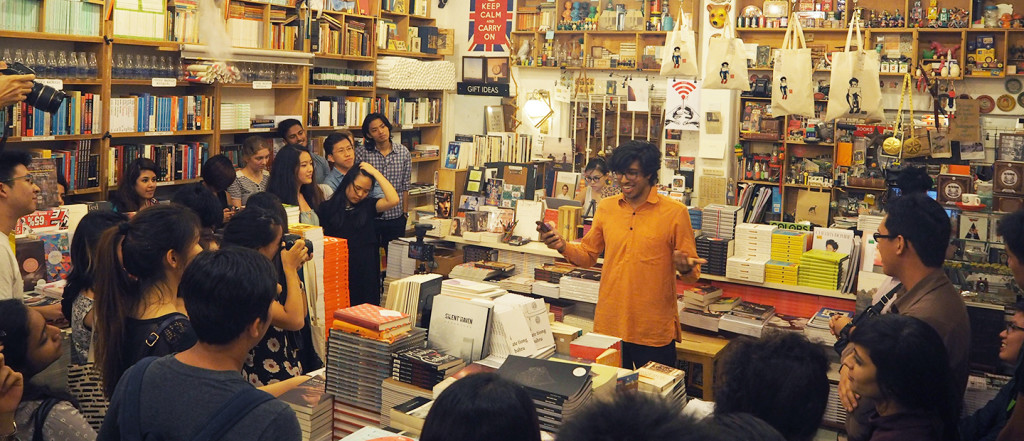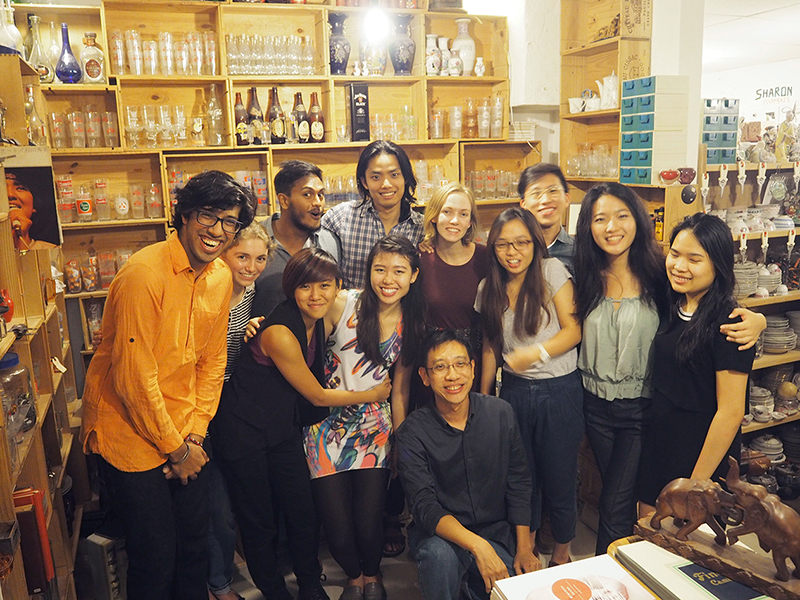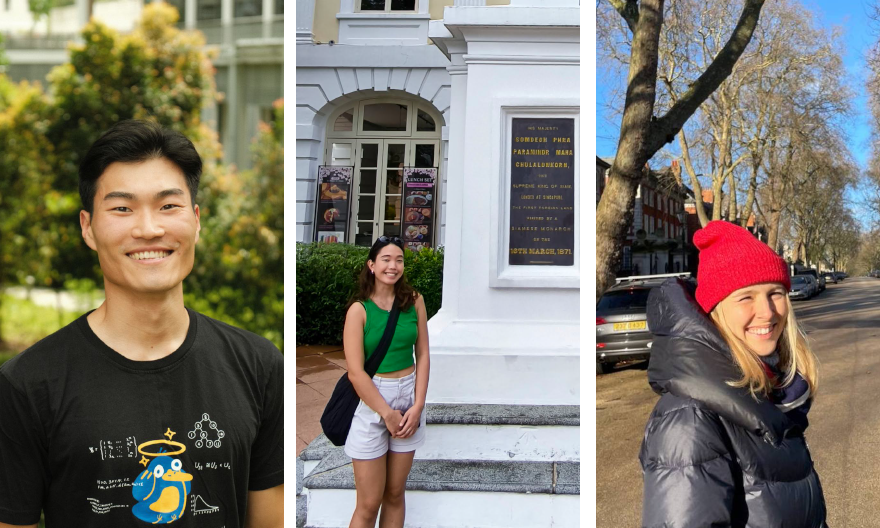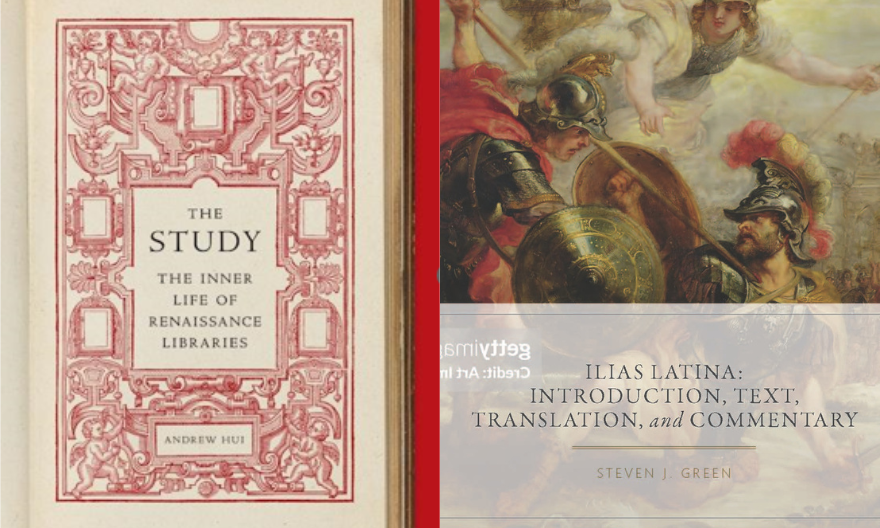Singaporean poet, Alvin Pang, teaches at Yale-NUS
“I always want to diverge and bloom and expand ideas… You can do that with poetry with few words, and sometimes, the fewer the words, the broader the ideas.”
— Alvin Pang

Student Rohan Naidu presenting his poems at BooksActually
Last semester, 14 Yale-NUS students delved into Introduction to Writing Poetry, a Yale-NUS course led by part-time lecturer, Mr Alvin Pang.
In local literary circles, Alvin Pang is well known and highly respected as a Singaporean poet, alongside other contemporary writers such as Edwin Thumboo, Lee Tzu Pheng, Alfian Sa’at, Felix Cheong and Cyril Wong, among others.
Besides being a prolific writer, Mr Pang has also been a teacher at Raffles Institution and Raffles Junior College, and has been an editor, columnist and longtime advocate for the Singapore literary scene.
This Yale-NUS course was his first teaching stint at a university level – one that he says he has enjoyed immensely.
“I think that the Yale-NUS climate and its students have been really wonderful and have really made the difference,” Mr Pang said of the course. “This would not have worked in the way it did if not for the bright, driven students Yale-NUS has, as well as the flexibility that the curriculum allows.”
The students were over the moon that Mr Pang was to be teaching them, and by the end of the semester, found his experience and insights invaluable.
“Mr Pang has told us about his own journey in becoming a poet, and how it really reflected the political and social changes that were going on in Singapore [over the past few years],” said one of his students and an Arts & Humanities major, Tara Dear, Class of 2017. “He certainly has a particular style, voice and set of ideas that he expressed to us.”
She added: “Because poetry is so subjective, I think it’s great that he takes such ownership over his, to tell us what kinds of things he tries to say through his own poetry, and how he became a Singaporean writer.”
With a mix of Singaporean and international students in the class, Mr Pang took the opportunity to arrange for class trips to the heart of the city, to expose the class to another side of Singapore.
He explained that he would usually try to fit in at least one field trip when he’s conducting a class.
“It’s really about getting out of the classroom and having a different perspective, and engaging with the world around you,” he said. “It’s really not a classroom based thing. It’s about keeping your senses active, paying attention and interacting with other people.”
For example, during a trip to the Singapore River, the class interacted with tourists, looked at texts by Singaporean writers on the Merlion, and wrote their own Merlion-inspired pieces.
“It’s not just Singapore – you can take this skill with you everywhere. There are always stories on the streets,” Mr Pang said with a smile.
Apart from building their craft, Mr Pang introduced them to the world of poetry, established poets and events around town. He encouraged students to take part in the Singapore Poetry Writing Month (SingPoWriMo), during which individuals pen one poem per day for the month of April.
Rohan Naidu, Class of 2017, gamely took up the challenge of participating in SingPoWriMo, armed with the new skills gained during the semester.
“Something that SingPoWriMo and the workshop-style classes taught me is that this is a very social art form,” shared the Physical Sciences major, who says he was an “interested amateur” before the class.
“I’ve always been interested in writing poetry, but I’ve never had any formal tutoring, guidance or anything of that sort,” Rohan said. “Thanks to last semester, I have a better sense of how I can grow in terms of my writing. I know what to look out for, certain themes and forms I can rely on, ways I can think about things, or different ways of presenting my words.”
Along with his classmates, Rohan presented his work at a public poetry reading organised by Mr Pang at the end of the semester.
Held at local bookstore BooksActually, Rohan and his classmates each took the limelight with two or three poems that evening, ending the class they enjoyed so tremendously on a high note.

Mr Alvin Pang (front, kneeling) with his class after the reading at BooksActually
“It was a good concluding point for the class, because most of us read from our final portfolio. In some sense, it was everyone’s best work,” reflected Rohan. “I would definitely want to continue writing poetry, but I’m not sure if I’ll end up with a book or anything. That’d be really cool, of course.”
Mr Pang shared that he was very pleased with the outcome of the course, and is glad that the students have learnt a little more about the rich world of poetry.
“They’ve come to their own understanding as to what this sort of work is about,” he said.
“And what more do you want from any kind of course, right?”




